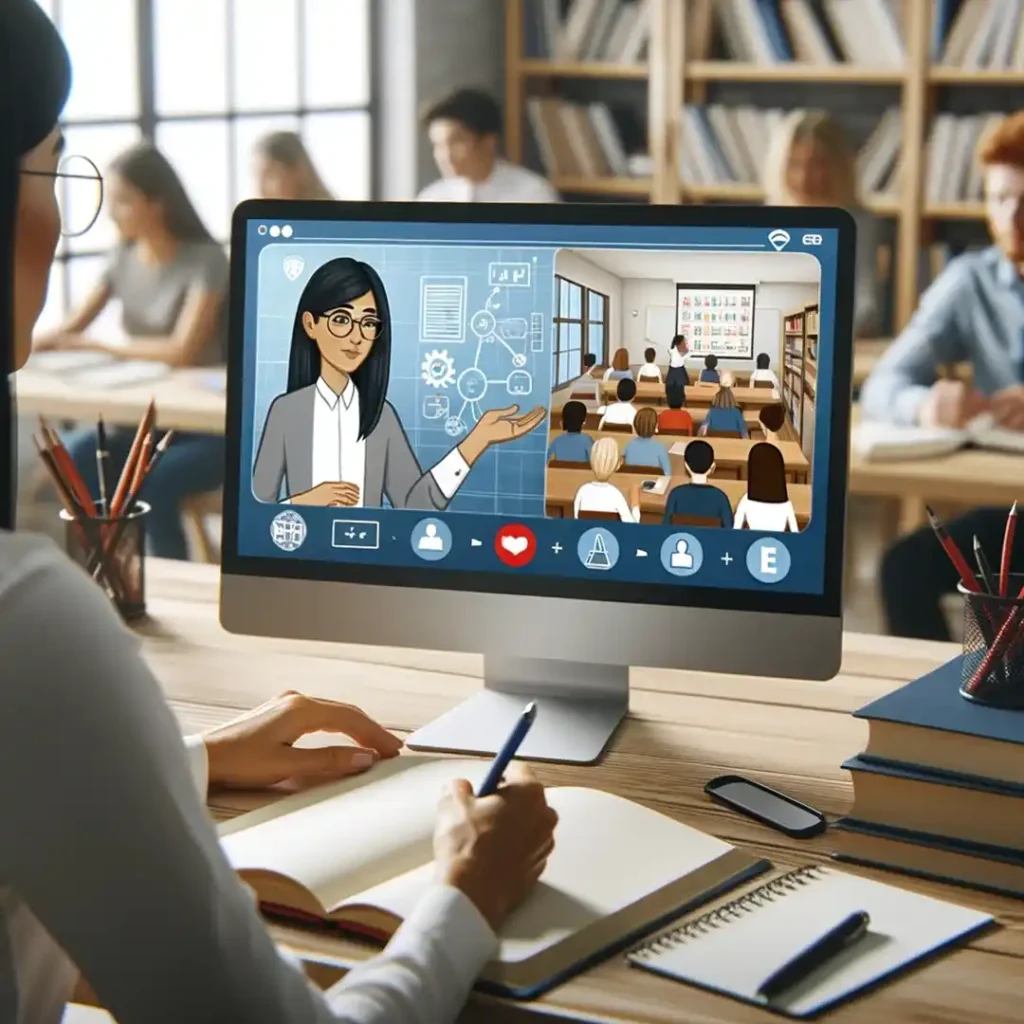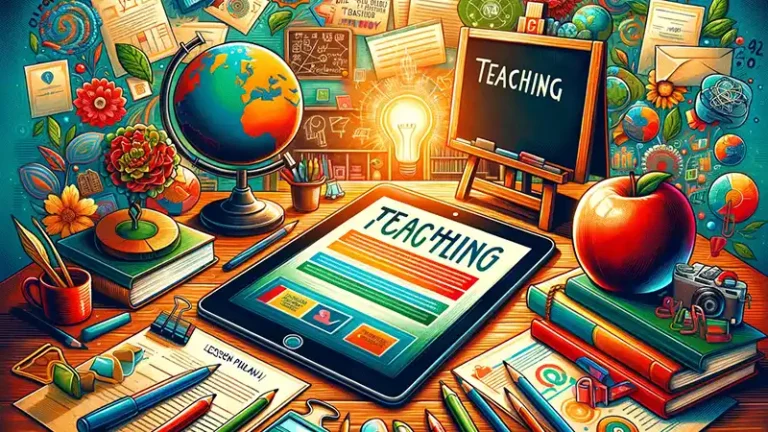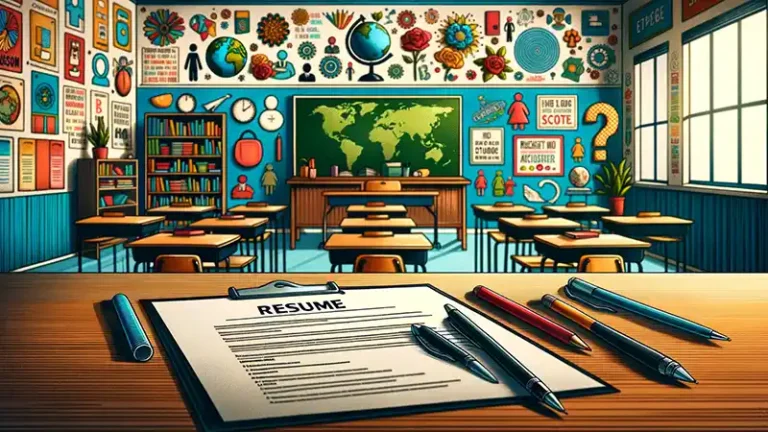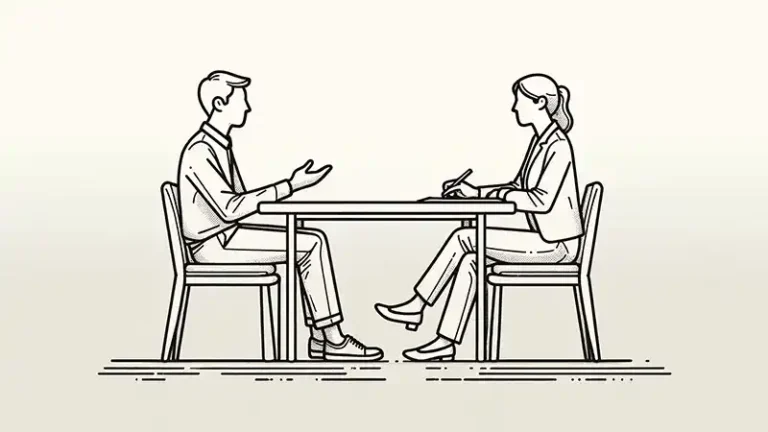Showcasing Technology Skills in the Teaching Interview
The rapid integration of digital tools and platforms in education necessitates that educators are not only familiar with but also adept in utilizing technology to enhance learning experiences. This shift has made the demonstration of technology skills a critical element in teaching interviews, where candidates are increasingly evaluated on their ability to integrate technology into their pedagogical practices.
The significance of showcasing technology skills during interviews cannot be overstated. In an era where remote learning, digital classrooms, and interactive educational tools are becoming the norm, teachers are expected to be at the forefront of embracing these changes. Demonstrating these skills can set candidates apart, showcasing their readiness to engage with students in a language they understand: the language of technology.
Understanding the Role of Technology in Today’s Classrooms
The landscape of educational technology is not static; it’s a dynamic field that continuously evolves, reshaping the way educators teach and students learn. This evolution has been accelerated by the need for remote and hybrid learning environments, pushing schools to adopt a range of technologies from learning management systems (LMS) to interactive digital resources.
Key technologies reshaping modern education include:
Learning Management Systems (LMS): Platforms like Canvas, Moodle, and Google Classroom have become integral, serving as hubs for online teaching, resource sharing, and student assessment.
Interactive Tools and Software: Tools such as Kahoot!, Quizlet, and Nearpod allow teachers to create interactive and engaging learning experiences, catering to diverse learning styles.
Digital Collaborative Platforms: Technologies like Microsoft Teams and Zoom have redefined classroom interaction, enabling real-time collaboration and communication.
Adaptive Learning Software: These programs adjust learning content based on individual student’s progress, providing personalized learning experiences.
Augmented and Virtual Reality (AR/VR): These technologies offer immersive learning experiences, making complex subjects more accessible and engaging.
Preparing to Showcase Your Tech Skills

To effectively showcase your technology skills in a teaching interview, preparation is key. Here’s how you can ensure you’re ready to impress:
Assessing and Aligning Your Technology Skills with the School’s Needs: Research the school’s technology usage and any specific platforms they employ. Align your skills with their tools and methods. For instance, if the school uses a specific LMS, familiarize yourself with its features and functionalities.
Tips for Updating and Brushing Up on Relevant Tech Skills Before the Interview:
- Stay abreast of the latest educational technology trends and tools.
- Engage in online courses or workshops to enhance your skills in areas like digital content creation, LMS management, or data-driven instruction.
- Practice using various educational software and tools to gain hands-on experience.
- If possible, gain certifications in popular educational technologies, which can add weight to your resume and discussions during the interview.
Effective Ways to Demonstrate Your Tech Proficiency
Once in the interview, it’s crucial to effectively convey your technology skills:
Discussing Past Experiences and Successes with Educational Technology: Share specific examples of how you’ve utilized technology to improve teaching and learning outcomes. This might include instances where you integrated multimedia resources into lessons, used technology to facilitate differentiated instruction, or leveraged data from educational apps to inform teaching strategies.
Demonstrating Familiarity with Online Teaching Platforms, Classroom Management Software, and Other Relevant Tools:
- Speak about your hands-on experience with various online teaching platforms, highlighting how you’ve used these tools to enhance student engagement and learning.
- Discuss your proficiency in using classroom management software to streamline administrative tasks and foster a productive learning environment.
- If you’ve used specific tools for student assessment, collaboration, or special needs education, detail how these have positively impacted your teaching practice.
Showcasing Innovative Tech-Driven Teaching Strategies

When demonstrating your technological aptitude, it’s impactful to share specific examples of how you’ve innovatively integrated technology into your teaching:
Sharing Examples of Technology Integration: Discuss how you’ve used technology to enhance lesson plans and classroom activities. This could include using interactive whiteboards for dynamic presentations, incorporating educational games or apps to reinforce learning, or utilizing online collaborative tools for group projects.
Exploring the Impact on Student Engagement and Learning Outcomes: Highlight the positive outcomes of these tech-driven strategies. Share any feedback received from students or observable improvements in engagement, understanding, or performance. If you have data or specific examples of increased participation or improved grades resulting from your tech integration, these can be powerful testaments to your effectiveness.
Navigating Common Interview Questions About Tech Skills
Preparing for potential interview questions about technology skills is crucial. Here are some examples and tips for effective responses:
Sample Interview Questions:
- “Can you provide an example of how you’ve used technology to engage a diverse classroom?”
- “How do you stay updated with the latest educational technology trends and tools?”
- “Describe a time when you had to troubleshoot a tech issue in the classroom. How did you handle it?”
Effective Responses:
- For engagement: Talk about a specific tool or app you used to cater to different learning styles, and how it helped in managing a diverse classroom.
- For staying updated: Share your sources for tech trends, such as professional development courses, online forums, or educational technology conferences.
- For troubleshooting: Describe the problem-solving skills and resourcefulness you exhibited when handling unexpected technology issues, emphasizing your ability to remain calm and find solutions.
Articulating Your Ongoing Commitment to Learning and Adapting to New Technologies:
- Express your enthusiasm for continuous learning and professional development in the field of educational technology.
- Discuss how you plan to keep pace with evolving tech trends and how you see these technologies shaping future educational practices.
Presenting a Digital Portfolio

A digital portfolio is an effective tool to visually showcase your proficiency and integration of technology in teaching. Here’s how to create one and what to include:
Creating a Digital Portfolio: Use platforms like Google Sites, WordPress, or Portfolium to create your portfolio. Ensure the design is professional and that the navigation is user-friendly. Include clear sections and labels to help interviewers easily find relevant information.
What to Include:
- Lesson Plans: Include lesson plans that highlight how you integrate technology into your teaching. Detail the objectives, the technology used, and the outcomes.
- Sample Projects: Showcase examples of projects or assignments where students used technology. This could be anything from digital art pieces to science projects that used data analysis software.
- Certifications and Coursework: Add any certificates from professional development courses in educational technology. If you’ve completed relevant online courses, such as those on digital literacy or specific educational tools, include these as well.
The Importance of a Growth Mindset in Technology Learning
In the rapidly evolving field of educational technology, a growth mindset is essential. Here’s how to discuss this in your interview:
Continuous Learning Approach: Emphasize your commitment to continuous professional development. Discuss how you stay informed about the latest educational technologies, whether through online courses, webinars, professional networks, or educational journals.
Adaptability to Emerging Technologies: Talk about your ability to adapt and learn new technologies as they emerge. Give examples of when you had to learn a new tool or platform and how you integrated it into your teaching.
Encouraging Students to Embrace Technology: Highlight how your growth mindset extends to your students. Discuss how you encourage them to explore and utilize new technologies, fostering an environment of curiosity and continuous learning.
Conclusion
The importance of showcasing technology skills in teaching interviews cannot be overstated in the current educational landscape. As classrooms continue to evolve into more digitally integrated environments, the ability of educators to effectively utilize and integrate technology becomes increasingly crucial. Demonstrating these skills during interviews is not just about proving competency; it’s about showing a readiness to engage with the contemporary educational paradigm.
For educators, embracing technology is no longer optional but a necessary aspect of professional growth and adaptation. The continuous development of tech skills is essential not just for personal career advancement but also for enhancing the learning experiences of students. Staying abreast of the latest technological tools and trends, and integrating them into educational practices, ensures that educators remain relevant and effective in their roles.





